Strategies
“I need some strategies to help with my addictions.” Often in the early stages of counselling work with a client, I’ll hear something like this. Or, “I want to make the most of this. What should I do during the week? Give me some homework.” Or, “Is there anything I should read?”
And I’m always stuck for an answer. I wanted to explore why that is, because having been a nerdy kid, I don’t like not having an answer to a simple question. Why don’t I have strategies, disciplines, reading lists, tips, tricks or life-hacks? The answer is, I suppose, because I don’t believe in them.
If there were an app, a book or a TED talk that gave the answer, that would be great! If there were an easier, better way to resolve the lifelong challenges of the human psyche, then why not take it? Therapists have a duty to consider how best to help their clients, even if it means re-training or abandoning expensively-acquired methods that don’t work. I’m fascinated by new approaches that have been developed in recent years such as Somatic Experiencing, and those that are on the horizon, such as psychedelic-assisted therapy. I want to find the most direct route to healing for my client, but I can’t shorten the journey.
There is no short-cut, and anyone who says there is, is selling something. The recent fashion for strategies, life-hacks, apps, daily affirmations, and so on has been created through marketing. They’re off-the-peg, mass-produced. A good example of this is what’s happened to mindfulness. It’s an ancient practice with Buddhist roots and proven efficacy. Today, however, it’s possible to become a mindfulness teacher by doing a weekend course, and the results are about as effective as might be expected. As a friend who has worked with mindfulness for over twenty years said to me, “it’s not a trick, it’s a way of life.”
The same problem has infected psychotherapy. As the great Irvin Yalom comments:
“There is a great paradox inherent in much contemporary psychotherapy research. Because researchers have a legitimate need to compare one form of psychotherapy treatment with some other treatment … they must offer a ‘standardized’ therapy – that is, a uniform therapy … And yet that very act of standardization renders the therapy less real and less effective.”
Yalom goes on to recommend that we “create a new therapy for each patient.” He says, “I try to avoid technique that is prefabricated and do best if I allow my choices to flow spontaneously from the demands of the immediate clinical situation.”
These are wise words. The most effective therapeutic work is individually crafted, bespoke. It requires humanity and presence and there is no system that can replace those. There are no rules, no methods that universally succeed. That’s why this work is entirely fascinating, creative and profound – for both therapist and client.
That doesn’t mean that counselling is a mysterious process that should be undertaken on faith alone. What I say to clients (again, following Yalom) is that the work is about change. If they don’t feel a change of some kind within a relatively short period, say 1-4 sessions, then something is wrong. That isn’t the same as saying that they’ll be ‘cured’ in a few weeks, but that they should notice the difference. Most of my clients work with me long-term, because they feel the power of what we’re doing.
Secondly, I say to clients that counselling is about having a different experience. I’m not here to teach anyone about psychological concepts or to correct their thinking. Most people can do that themselves by reading or self-reflection. I’m here to facilitate a unique experience – exactly the one this particular client needs to have.
The new therapy is co-created with the client, just as any relationship is created by two or more people. And relationship is the key. Human beings are born into relationship and we learn to regulate our emotions within relationship. Most of our problems come from trying to regulate our emotions in other ways – through an addiction to a substance, for example. A drug is a very poor substitute for a loving relationship. A strategy – to return to our theme – is another poor substitute. Anything that can be standardised, systematised, automated, is by implication not what we need. It’s not human relationship.

